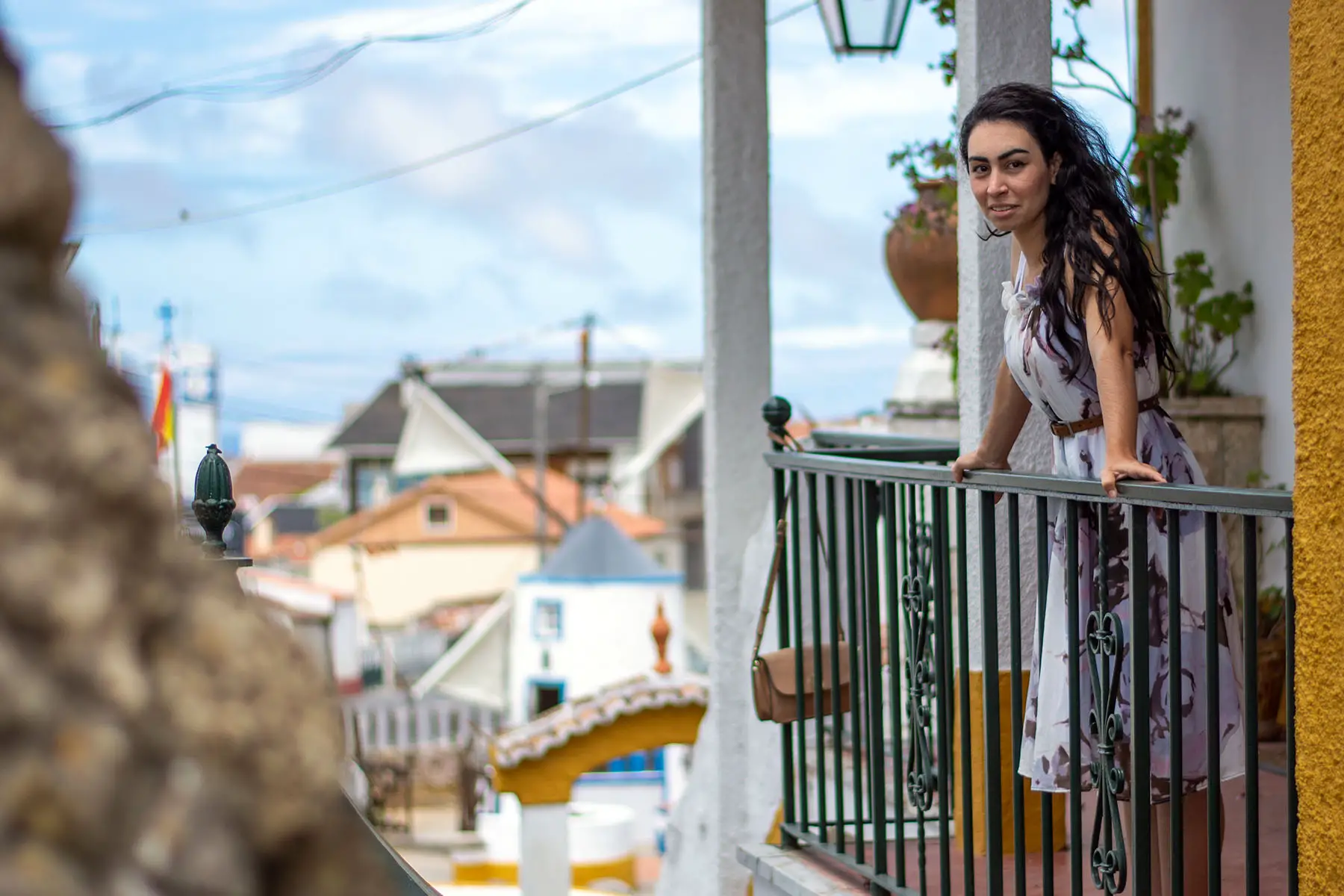If you’re an expat living in Portugal or planning to buy from abroad, it’s essential to understand how the system works. Your residency status, income source, and even the type of property you’re buying can all affect your mortgage options. While the process is generally straightforward, being prepared can make all the difference.
Here’s what you need to know about getting a mortgage in Portugal:
- Mortgages in Portugal
- Can you get a Portuguese mortgage as a foreigner?
- Mortgage rates in Portugal
- How much can you borrow for a Portuguese mortgage?
- Common types of Portuguese mortgages
- Mortgages in Portugal for other purposes
- How to apply for a Portuguese mortgage
- Additional costs and fees for Portuguese mortgages
- Do you need property insurance to get a mortgage in Portugal?
- How mortgage repayments work in Portugal
- Refinancing a Portuguese mortgage
- Useful resources
Upscore
With Upscore, you can get a mortgage in Portugal using income from your home country, with lenders matched to your needs. They allow you to apply remotely, compare rates, and get personalized support. Get the most value out of your financial data and unlock opportunities wherever you move with Upscore.
Mortgages in Portugal
Portugal is a nation of homeowners. Around 73.4% of residents have bought their own property, a figure above the European Union (EU) average of 70%.
Mortgage (hipotecas) lending in the country has risen in the last few years, with approximately 38% of Portuguese residents having a mortgage. This puts Portugal broadly in line with France, Switzerland, and the UK. A further 41% of Portuguese residents own their home outright.
If you’re looking to take out a mortgage in Portugal, how much you’ll be able to get and on what terms depends on a few factors. These include your residency status, employment status, and financial circumstances.
Can you get a Portuguese mortgage as a foreigner?
Almost everyone with a good credit score can get a mortgage loan in Portugal. As in other countries, having a secure job and a stable income will improve your chances of getting approved. It is, however, possible to get a home loan if you’re self-employed or retired.
For expert help finding a lender that meets your needs, try a service like Upscore. Their advisors can match you with your ideal Portuguese mortgage offer.

There are also no restrictions on foreigners taking out a mortgage in Portugal. However, it is likely to be easier to get a home loan if you have Portuguese residency. Expat residents can borrow at a higher loan-to-value level and have a greater choice of lenders and deals.
Mortgage rates in Portugal
Mortgage rates in Portugal typically vary from 2% to 5%. The current average rate is 3.3%. It all depends on things like the value of the property, the size of your deposit, your financial history, and the type of mortgage you’re taking out. For the latest rates, you can check individual bank websites, contact a mortgage broker, or look at current averages.

Mortgage interest rates in Portugal are heavily influenced by the Euribor. When a borrower takes out a variable-rate mortgage, it’s usually charged as the Euribor rate, plus a fixed percentage. There are five different Euribor rates – including a one-month, three-month, and six-month rate. To illustrate, if the relevant Euribor rate is 1% and the mortgage charges Euribor plus 2%, the borrower would pay an interest rate of 3%.
You can find the latest Bank Lending Rate (the average rate charged by banks when lending to individuals) on the Trading Economics website, which is updated monthly.
How much can you borrow for a Portuguese mortgage?
The amount of money you can borrow when taking out a mortgage will largely depend on whether you have resident or non-resident status in Portugal. To become a resident, you’ll need to adhere to a series of rules, including spending at least 183 days of the year in the country, having a registered address, and paying Portuguese taxes.
Residents can often borrow as much as 80–90% of the property value. Non-residents, however, will be limited to 60–70%. Residents may also be offered higher borrowing limits (the amount you can borrow as a multiple of your annual income). In some instances, borrowers who have their salaries paid into a Portuguese bank account may also get a loan more easily.
To qualify for a mortgage, your application will need to follow the bank’s lending rules. Generally speaking, your monthly repayments – plus ongoing repayments on any existing debts – cannot be more than 30–35% of your monthly income (after tax).
Online mortgage calculator in Portugal
Many Portuguese banks and mortgage providers have an online mortgage calculator on their websites.
Most online tools calculate an estimated monthly mortgage repayment by looking at your net borrowing, mortgage insurance, and property tax. The mortgage calculator from Quinta Finance also indicates how much you might need to repay on interest, tax, and insurance each month.
Common types of Portuguese mortgages
You can take out both a variable-rate or fixed-rate mortgage:
- Variable-rate mortgages (hipotecas de taxa variável) – this is a commonly available option. If you choose a variable-rate deal, your interest rate will fluctuate during the term of the loan. How much it changes is based on the Euribor (Euro Interbank Offered Rate). The regularity with which your rate will be reviewed depends on which Euribor the mortgage is indexed on.
- Fixed-rate mortgages (hipotecas de taxa fixa) – these mortgages involve a specific rate that is set for a number of years. During this time your monthly repayments will remain the same. Fixed-rate mortgages can be more expensive than variable-rate deals, but you’ll be protected from fluctuations in the Euribor rate. Fixed terms can last as little as one, two, or five years. Some lenders also offer mortgages with their rates fixed for the entire term of the loan.
The vast majority of mortgages in Portugal are offered on a repayment basis. That means your monthly payments will cover some of the amount you’ve borrowed, plus interest charged by the bank. Interest-only mortgages – where you only pay the interest each month and repay a lump sum at the end of the term – are uncommon.
Mortgages usually last between 10 and 30 years, though it might be possible to get a 40-year term if you are a resident, depending on your circumstances. Lenders will require the mortgages to be fully repaid by the age of 70, 75, or 80.
Mortgages in Portugal for other purposes
Buy-to-rent mortgages in Portugal
If you’re looking to buy a property in order to rent it out, you can get a buy-to-rent mortgage. These likely require a much bigger deposit than if you were buying a home to live in. Portuguese lenders might ask for a downpayment of up to 40% of the property’s value.
You’ll also need to show evidence that you’d have enough income to make the mortgage payments, even if you didn’t make any rental income from the property.
Commercial mortgages in Portugal
To get a mortgage on a business property in Portugal, you’ll usually need a deposit of at least 50% of the sale price. The mortgage lender will require information on your intended business, including a business plan if you’re setting up a new company.
How to apply for a Portuguese mortgage
When applying for a mortgage, you can either approach a bank directly or go through an independent mortgage broker in Portugal. If your Portuguese language skills aren’t quite there yet, an English-speaking broker could be useful. You won’t usually need to pay the broker for their services; instead, the bank you take out the mortgage with will pay them a commission.

The mortgage application process can take some time. With this in mind, It can be worthwhile to start looking for a mortgage as soon as you begin your property search. This will give you time to get your documents in order and help you get a clear idea of how much you might be able to borrow.
- Get a quote: the lender will give you a no-obligation quote, based on basic information you provide about your finances and the property you’d like to buy
- Submit an application: once you’ve found a property and a mortgage deal you’re happy with, you can submit a formal application, providing the necessary documents
- Get a formal mortgage offer: once the lender has assessed your application, it’ll provide you with an offer
- Get a valuation: next, the bank will conduct a valuation and confirm the property is worth the amount you’re planning to pay
- Proof of deposit: you’ll need to transfer your deposit, after which the lender will finalize your application
- Completion: you’ll sign the property deeds and mortgage agreement in the presence of a notary. You’ll now pay the required taxes and fees to take ownership of the property.
To apply for a Portuguese mortgage, you’ll usually need to provide the following documents:
- Proof of ID (e.g., a passport or ID card) and address (e.g., utility bills)
- Proof of income (e.g., payslips, tax returns, or pension statements)
- Employment contract (if applicable). Self-employed applicants will need to provide their most recent tax return, six months of bank statements, and a copy of their company’s accounts.
- Proof of deposit
- Bank statements for the last three months and a reference letter from your bank (not always required)
Additional costs and fees for Portuguese mortgages
How much you’ll need to pay in additional fees will vary per bank and mortgage. Typical fees include:
- Administration fees – charged by the bank or mortgage broker, around 1% of the mortgage amount
- Mortgage arrangement fees – usually between 0.3% and 1% of the mortgage amount
- Valuation fees – between €500 and €800
- Mortgage registration tax – around 1% of the mortgage amount

In addition, you will have to pay transfer tax and stamp duty when making the purchase. Lenders might charge you a flat non-refundable application or commitment fee of around €500.
Do you need property insurance to get a mortgage in Portugal?
Banks usually require you to have some form of life insurance before taking out a mortgage. In some cases, you also need medical insurance or building insurance. This last one will cover the cost of housing repairs if there is any damage (e.g., due to fire or flooding).
It could also be beneficial to take out contents insurance to protect your belongings against damage or theft, but this isn’t a requirement.
How mortgage repayments work in Portugal
Mortgage repayments are usually made on the same date each month, and overpayments are allowed. Extra debt repayments come with an additional fee of 0.5% (if you’re on a variable-rate mortgage) or 2% (if you’re on a fixed-rate mortgage). These fees are set by the Bank of Portugal and are adjusted annually.
Refinancing a Portuguese mortgage
You can choose to refinance your mortgage, for example, to borrow additional money or extend your pay-off term. In that case, you may need to pay early repayment charges on your current loan. Depending on its terms, these charges can vary from around 2% to 5%.
Banks and mortgage brokers may also charge rearrangement fees (usually around 1% of the mortgage amount) and there may be other costs, such as notary or legal fees.
Portuguese lenders can be relatively risk-averse when it comes to extending terms. Most are unwilling to extend the number of remaining years by more than 25%. Banks may be more amenable in allowing you to borrow extra money to fund home improvements, as this will increase the value or energy efficiency of the property. Keep in mind that you must meet their financial criteria, so be sure to ask around.
Useful resources
- Euribor rates – official website with the latest Euribor rates
- Trading Economics – website with the latest Portugal Bank Lending Rate







